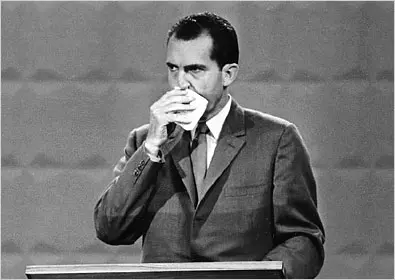Fear? Nah. Embarrassment. That’s What Should Keep You Up at Night.

People like to talk about fear as if it’s some great, all-powerful force—this looming specter that governs our every move. Presidents give speeches about it, soldiers march into battle with it, and cowards sit in corners because of it. Franklin Delano Roosevelt once said, “The only thing we have to fear is fear itself.” A bold declaration, but let me tell you something, he was only half right.
Fear? That’s for prey. Fear is a reflex, an animalistic twitch at the thought of pain or death. The deer fears the wolf, the mouse fears the hawk, the weak fear the strong. But embarrassment? That’s what really destroys a person. That’s what lingers in the mind long after the threat has passed, gnawing at the soul like a festering wound.
A man who is merely afraid can act in spite of it. Fear can be conquered, controlled, even weaponized. But embarrassment? That sits with you at the dinner table. It whispers in your ear at night. It walks into the room before you do, making sure everyone remembers that moment—the stumble, the failure, the pathetic misstep that turned you into a joke. And if there’s one thing more dangerous than being afraid, it’s being laughed at.
The people who fear other people aren’t really afraid of them—they’re embarrassed by them. They’re embarrassed by how much power they hold over their image, their reputation, their dignity. And dignity is worth more than life itself in this world.
History isn’t written by the strong. It’s written by the ones who refuse to be humiliated. The ones who understand that power isn’t about brute strength—it’s about perception. The most dangerous man in the room isn’t the one with the biggest muscles or the loudest threats. It’s the one who knows how to manipulate shame. The one who understands that making a man afraid won’t break him, but making him embarrassed? That’s the kill shot.
Julius Caesar didn’t fear Brutus—he was embarrassed by him. The betrayal, the spectacle, the knife in the back from someone he trusted. That was the real wound, not the steel. Richard Nixon didn’t step down because he was afraid—he stepped down because he couldn’t stand the shame. The world saw him sweat, saw him squirm, saw the powerful man reduced to a punchline. And once a man becomes a joke, he’s already dead.
So forget fear. Fear is a tool. A leash. A convenient excuse to explain away failure. But if you want to keep your head above water in this world, if you want to walk into every room with your spine straight and your power intact, then understand this—what should keep you up at night isn’t what you fear. It’s what you can’t afford to be embarrassed by.
Because once the world stops taking you seriously, it’s already too late.
- Audio & Video
- Art & Crafts
- Causes
- Dance
- Drinks
- Fitness
- Food & Drink
- Games & Gaming
- Gardening
- Health
- Home Improvement
- LGBTQ
- Literature
- Music
- Networking
- News
- Partisan Politics
- Religion & Spiritual
- Shopping
- Sports & Recreation
- voorbeeld
- Theater
- Wellness


